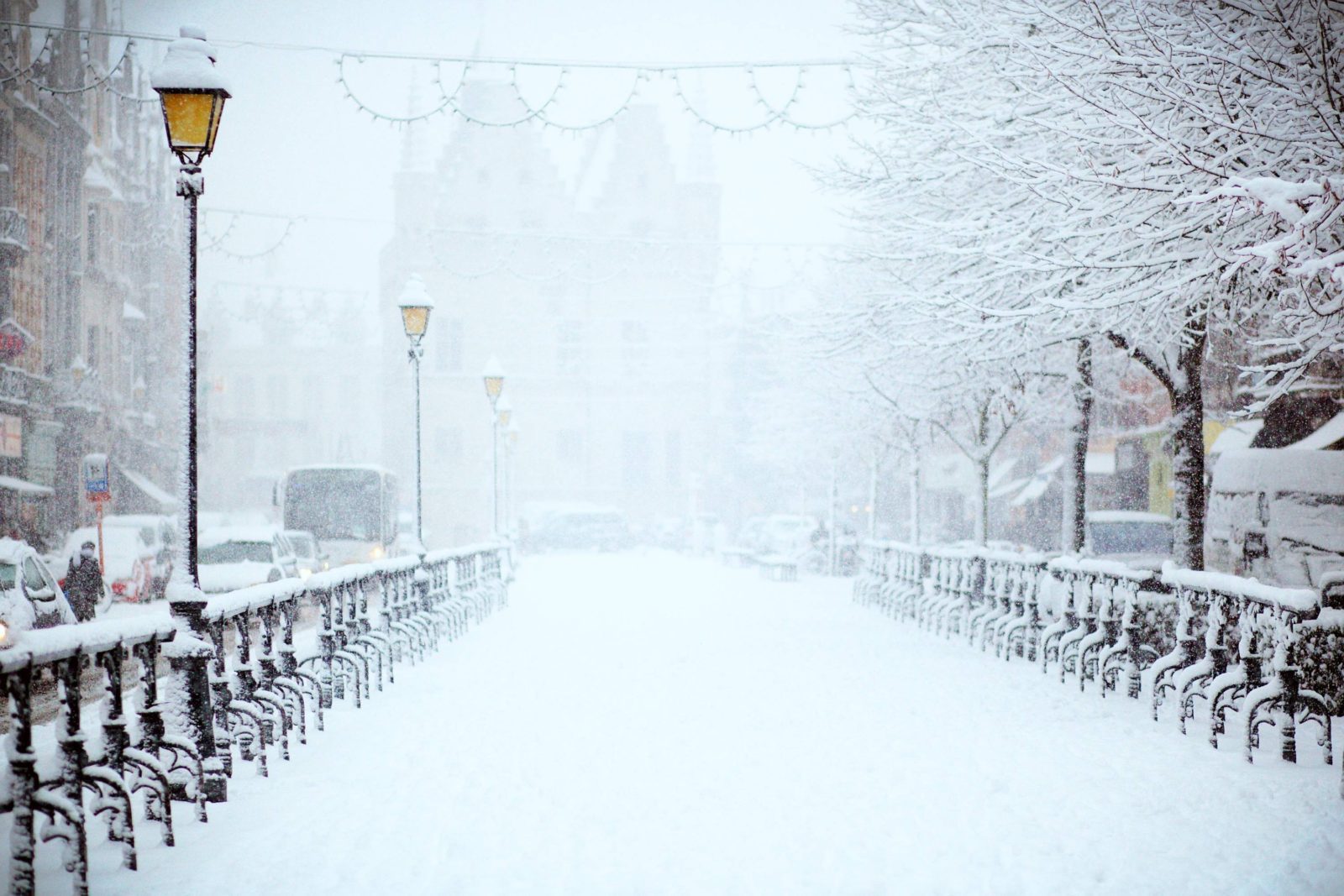As many of you know, a massive snow storm on Saturday covered the I-95 corridor from Washington D.C. to New York City.
Several hundred feet fell on my driveway. Nowhere else. Just my driveway. I even gave in and borrowed my neighbor’s snowblower, which is a big deal for a German. We like to suffer. I probably deserved the snowstorm, anyway, and landing in the ER near death will somehow make up for my failures as a person.
So I’m out there blowing snow and freezing, and my heart begins to get resentful about it all. But then I remember that as a Christian, and especially as a biblical scholar, I need to study this matter biblically and see what the biblical teaching on snow is. I want to know how I should think about snow so as not to fall into error, even though I hate snow with every fiber of my being.
It may interest you to know that the word “snow” (Hebrew sheleg, Greek chion) appears 23x in the Bible. And in every single instance, snow has either a neutral or positive meaning. Nowhere was I able to find a condemning word about snow. This is important, for biblical teaching on any matter must be consistent.
Now some of you are thinking that the Bible appears to have some negative comments about snow: in Exodus 4:6, Numbers 12:10, and 2 Kings 5:27 a leprous hand is described as “white as snow.” So perhaps the Bible isn’t consistent after all, and then I am not going to know what to think about my driveway.
But consider: (1) These verses are all in the Old Testament, and who really cares about the Old Testament anyway? and (2) “Snow” in these verses are almost certainly scribal errors for “blow” as in “Miriam had become leprous, as white as blow” (Numbers 12:10). The scribal error most likely occurred when the Hebrew consonants n-sh-ph (blow) were mistaken for sh-l-g (snow), either by a scribe who didn’t know any Hebrew whatsoever or had been outside shoveling his driveway for two days and really didn’t care anymore.
I realize this textual argument is conjectural, a daring suggestion in the face of no evidence, but it nevertheless remains possible or at least not impossible, and since emending the text as I suggest preserves the immutable doctrine of “consistent biblical teaching,” only a heretic would discount this possibility/non-impossibility.
And so, the Bible is unanimous on its teaching on snow, and that should give contemporary snow-haters pause to reconsider their attitude.
For example:
- Killing a lion in a pit is a good thing to do in the snow (2 Samuel 23:20);
- Snow falls at God’s command (Job 37:6) from heaven (Isaiah 55:10), specifically from heavenly storehouses (Job 38:22);
- Snow is associated with the forgiveness of sins (Psalm 51:7; Isaiah 1:18);
- Snow is not to be feared (provided you wear a red snowsuit; Proverbs 31:21, see illustrative photo at right);
- Back in the good old days, before the exile, Jerusalem’s princes were “purer than snow” and only later “blacker than soot” (Lamentations 4:7-8);
- Jesus, especially his head and hair, are white as snow (Matthew 28:3; Revelation 1:14; see also Daniel 7:9).
Outside of the Bible, in the Apocrypha, we find three references to snow where snow is a bad thing.
In Wisdom 16:22, snow can withstand “fire without melting,” which somewhat parallels my experience these past two days. Snow is like a honey badger—it just sits there looking at you, daring you.
But this isn’t in the Bible—the real one, the one Protestants have—and I can’t just go around picking and choosing whatever the heck I want just because I’m mad at the snow. I have to stick to biblical teaching. There’s probably a good reason this anti-snow rhetoric didn’t make it into the Bible. (Same thing for Ecclesiasticus 43:13, 17, where “driving snow” is God’s judgment and compared to attack birds and locusts.)
The Bible is full of hard sayings that we have to put up with, whether we want to or not. That’s why it’s the Bible.
Some might try to argue that the biblical teaching on snow isn’t really a teaching at all, but more a culturally conditioned expression on the part of ancient Israelites living in a warm climate, who were like, “Whoa, snow!” But don’t let those “scholars” and “experts” deter you from following clear biblical teaching.
I hope my serious study of scripture has straightened this out for you all. I know it has for me. And the fact that I can’t straighten out my spinal column is a small price to pay for being biblically grounded.
You might also like:

